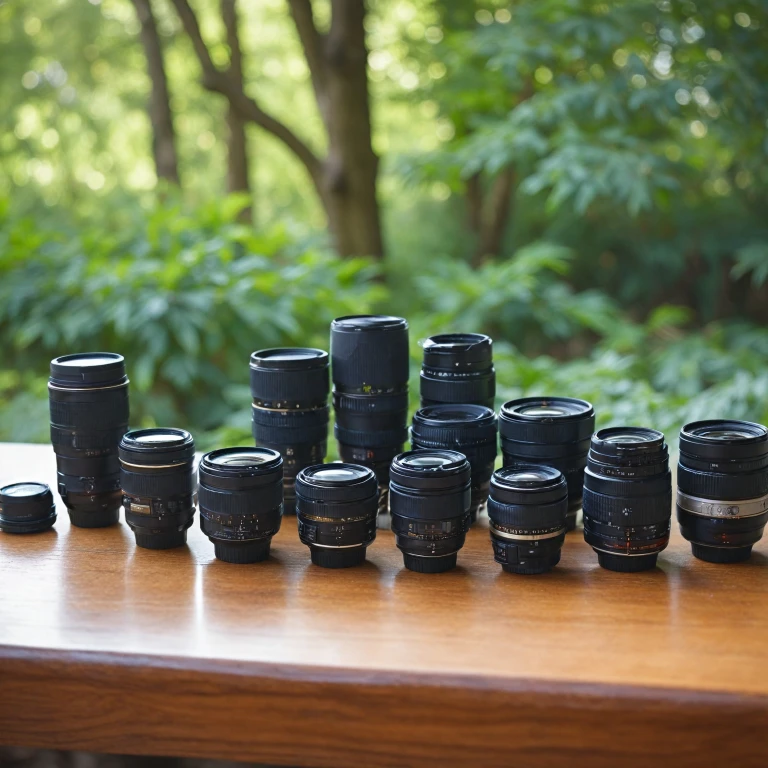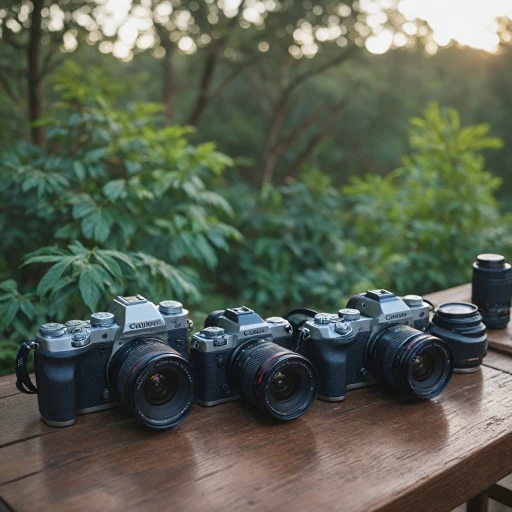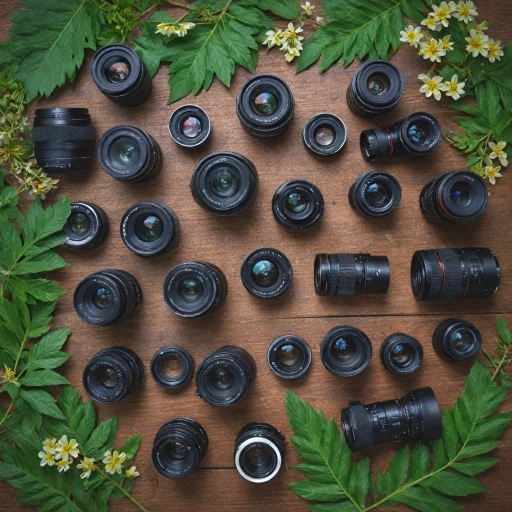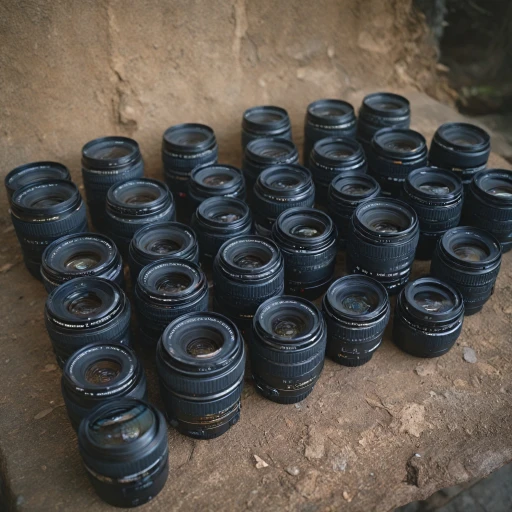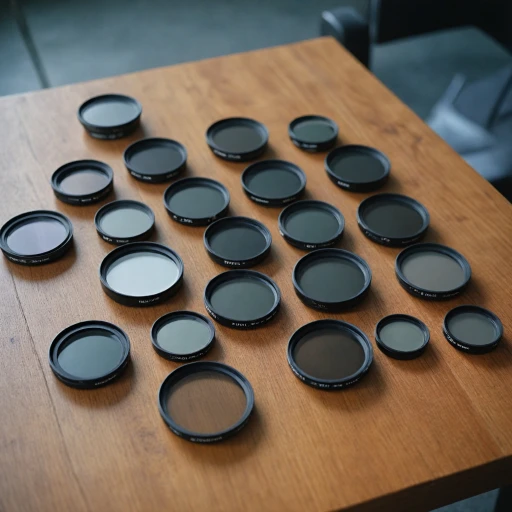
Understanding Lens Sharpness
The Importance of Lens Sharpness in Photography
Achieving the best image quality in photography starts with understanding the sharpness a lens can provide. For photographers, whether they're using a Nikon lens or exploring other brands like Sigma, sharpness plays a crucial role in the final output of their images. Thanks to advancements in lens technology, today's lenses are crafted to provide sharp results across various focal lengths and apertures, essential for both enthusiasts and professionals.Factors Influencing Lens Sharpness
Several factors influence the sharpness of a lens. Firstly, the type of glass and coatings used in Nikon lenses are designed to minimize distortions and chromatic aberrations, ensuring precise clarity. The mount of these lenses also affects performance, with the Nikon F mount lenses offering reliable and consistent results. Furthermore, the maximum aperture of a lens can determine its sharpness at different settings. A wide aperture might offer more creative control, but stopping down slightly often results in the sharpest images.Evaluating Lens Performance
When reviewing lenses on platforms like Amazon, it's important to consider user reviews, focusing on specific mentions of sharpness in various shooting conditions. For instance, full frame and wide angle photographers often prioritize lenses that maintain sharp quality from edge to edge, and a great Nikon lens in this category is highly regarded among many professionals. For those focused on macro photography, lenses with minimal focus distances are designed to capture intricate details with sharp precision, ideal for subjects where every millimeter counts. Zoom lenses also factor into the equation, where a sharp zoom range can make a difference in situations with varied focal requirements. Additionally, when thinking about lens upkeep, having the right tools is essential. Investing in the essential miniature screwdriver set for digital camera enthusiasts can help ensure your lens remains in top condition, maintaining its ability to deliver sharp images consistently unveiling a must-have tool.Nikon's Reputation for Precision
Nikon's Commitment to Excellence in Lens Manufacturing
Nikon, a name synonymous with high-quality lenses in the photography world, has established a solid reputation for precision. The brand's dedication to producing the best Nikon lenses underscores its commitment to superior optical performance and innovation.
Unlike many other manufacturers, Nikon focuses heavily on the intricate details that help achieve outstanding sharpness. Their infamous Nikkor line, in particular, showcases this devotion with various lens models designed to cater to every photographer's needs, from wide-angle to macro photography.
Nikon's sophisticated approach includes a deep understanding of lens elements, coatings, and glass quality. These components come together to ensure clarity and sharpness, even when you push your equipment to its limits with a wide aperture or extended zoom range.
Furthermore, Nikon's proprietary technologies, like their advanced autofocus systems found in some of their full-frame cameras and lenses, enable photographers to maintain sharp image quality with precision focus distance control. This meticulous attention to detail contributes to the remarkable sharpness that continues to attract professional and amateur photographers to the brand.
Despite the competitive landscape where brands like Sigma produce compelling alternatives, Nikon's mount lenses consistently earn favorable reviews due to their focus on not only maintaining image quality but elevating it to new heights. Their substantial lineup of Nikon Nikkor lenses is renowned for being some of the sharpest available today, as echoed in countless Amazon reviews.
Top Nikon Lenses Known for Sharpness
Highlighting Nikon's Sharpest Lenses
When it comes to capturing the finest details in photography, the choice of lens can make all the difference. Nikon, renowned for its precision and quality, offers a range of lenses that are celebrated for their sharpness. Whether you're a professional photographer or an enthusiast, understanding which lenses stand out can enhance your photographic journey.
Nikon AF-S NIKKOR 24-70mm f/2.8E ED VR
This lens is often hailed as one of the best Nikon lenses for sharpness. Its versatile zoom range makes it ideal for a variety of photography styles, from portraits to landscapes. The maximum aperture of f/2.8 ensures excellent performance in low-light conditions, while the Vibration Reduction (VR) technology helps in capturing sharp images even at slower shutter speeds.
Nikon AF-S NIKKOR 70-200mm f/2.8E FL ED VR
For those who need a longer focal length, this lens is a top choice. It's perfect for sports and wildlife photography, offering exceptional image quality across its zoom range. The lens's advanced optics and VR technology contribute to its reputation for delivering sharp, detailed images.
Nikon AF-S NIKKOR 85mm f/1.4G
Known for its stunning bokeh and sharpness, this prime lens is a favorite among portrait photographers. The wide aperture of f/1.4 allows for beautiful background separation and excellent performance in low-light scenarios. Its sharpness and image quality make it a staple in many photographers' kits.
Nikon AF-S Micro NIKKOR 105mm f/2.8G IF-ED VR
For macro photography enthusiasts, this lens offers incredible sharpness and detail. Its close focus distance and VR technology make it a great choice for capturing intricate details of small subjects. The lens's ability to maintain sharpness at close distances is a testament to Nikon's engineering prowess.
While Nikon lenses are renowned for their sharpness, it's important to consider factors like focal length, aperture, and intended use when selecting the right lens for your needs. Comparing these lenses with competitors like Sigma can also provide insights into which lens might be the best fit for your photography style.
Factors Affecting Lens Sharpness
Key Factors Determining Lens Sharpness
Lens sharpness is influenced by a variety of factors, each contributing to the overall image quality that photographers seek. Understanding these elements can aid in choosing the best Nikon lenses for your photography needs.
Optical Quality
The optical design of a lens plays a pivotal role in determining its sharpness. Nikon, known for its precision engineering, offers lenses that often stand out in this regard. The use of high-quality glass and advanced coatings in Nikkor lenses enhances clarity by reducing chromatic aberration and distortion.
Aperture and Aperture Blades
The maximum aperture of a lens also affects sharpness. Lenses with larger apertures (lower f-numbers) allow more light and typically offer better performance in low-light conditions. However, stopping down to a mid-range aperture, such as f/5.6 or f/8, usually produces the sharpest result, as it minimizes issues like diffraction and lens aberrations.
Focal Length and Zoom Range
The focal length and zoom range can influence sharpness, particularly in zoom lenses. Fixed focal length lenses (primes) often deliver superior sharpness compared to zooms, considering their simpler optical path. However, many Nikon zoom lenses are engineered to offer excellent performance throughout their zoom range, particularly the Nikon Nikkor Z and F series.
Build and Design
The physical construction of the lens mount and body ensures stable performance over time. The rugged build of Nikon mount lenses minimizes distortions and vibrations that can affect sharpness. Lenses like the Sigma HSM series also aim to provide durable design features along with sharpness.
Camera Sensor Compatibility
The compatibility between the lens and the camera sensor, whether full frame or crop sensor, also affects the sharpness perceived in images. Nikon lenses are designed to perform excellently with Nikon camera bodies, ensuring that sharpness is maximally preserved from lens to sensor.
These factors, combined with Nikon's reputation for precision, make Nikkor lenses a popular choice among photographers seeking top-notch image quality. When evaluating lenses, it's essential to consider reviews to understand how they perform under varying photographic conditions.
Comparing Nikon Lenses with Competitors
Comparing Different Brands
When delving into the world of lens sharpness, it becomes essential to compare Nikon lenses with those from other brands like Sigma. Nikon lenses, including the well-regarded Nikkor series, are celebrated for their impressive sharpness and image quality. However, other manufacturers, such as Sigma, are known for creating excellent alternatives that sometimes rival or even surpass the renowned Nikon optics.
For instance, Sigma's Art series has received positive reviews for its sharpness and quality at various apertures. A specific contender is the Sigma HSM lens, which offers fantastic sharpness and is a favorite among photographers seeking high-quality optics. Besides, the advantage of a wide zoom range provided by some Sigma lenses makes them popular for certain photography styles, like wide-angle photography on full-frame cameras.
Price and Performance Factors
Price is another factor that often influences the choice between Nikon and other brands. It is generally perceived that third-party manufacturers like Sigma offer slightly more affordable options without compromising too much on image quality. For photographers on a budget, a Sigma lens might provide a great cost-to-performance ratio, especially when considering factors like sharp macro performance or focus distance in photography.
Versatility and Compatibility
Nikon lenses have the advantage of being designed specifically for Nikon cameras, ensuring perfect harmony in terms of sensor compatibility and mount precision. Nikon mounts are known for their secure fit and reliability, offering peace of mind during critical shoots. However, many third-party brands now manufacture lenses that are also compatible with Nikon mount systems, thus widening the available options without limiting choices to Nikon-made lenses alone.
When deciding between Nikon and its competitors, it's crucial to consider specific needs such as the desired focal length, maximum aperture, and intended use of the lens. For photographers, understanding both the unique strengths of Nikon and the potential benefits of other brands will ensure a choice that fits both their creative vision and practical requirements.
Choosing the Right Lens for Your Needs
Finding Your Perfect Match
When it comes to selecting a lens, understanding your photographic goals is key. This step will help align your choice with the impeccable precision associated with Nikon lenses, known for their unparalleled sharpness and durability. The importance of features such as the zoom range, maximum aperture, and focal length cannot be overstated, as they greatly influence the image quality in various shooting scenarios.
If capturing expansive landscapes or dramatic urban scenes is your forte, a wide-angle lens with a shorter focal length could be your best companion. Lenses like the Nikon Nikkor 14-24mm f/2.8 are renowned for their edge-to-edge sharpness, making them excellent choices for adventurous wide framing.
Conversely, if your interests lean towards intimate detail or macro photography, prioritizing a lens with an excellent focus distance is crucial. The Nikkor 105mm f/2.8G, for example, is celebrated for its performance in macro settings, offering sharp and detailed close-ups.
Understanding the role of aperture and its impact on depth of field can be pivotal. Lenses with a lower maximum aperture such as f/1.4 or f/1.8 are excellent for low-light conditions and achieving that beautifully blurred background. This is particularly beneficial for portrait photography.
Balancing factors like weight, size, and cost against your needs is also essential. Consider exploring options outside the Nikon family as well, such as the Sigma HSM lineup, which offers a competitive image quality at a more accessible price point.
Navigating through reviews and considering factors outlined in our discussion about factors affecting lens sharpness, from optical design to lens construction, can give a comprehensive insight into which lens will be the best addition to your Nikon camera system.

